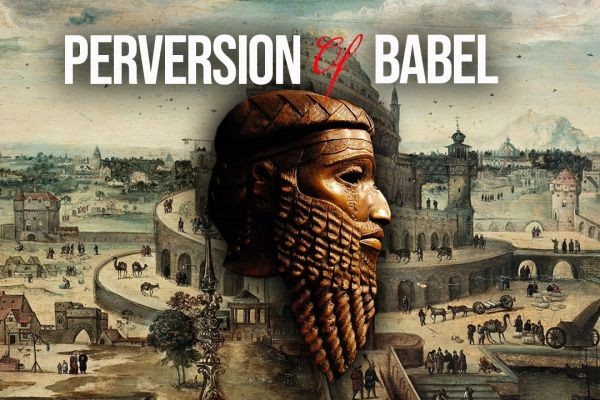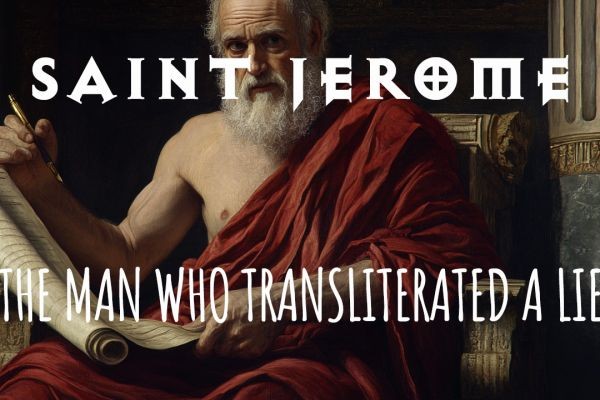“Pedantic Pathways to Pointless Debate: A Call for Unity and Understanding” explores a common issue within the Hebrew community: the tendency to focus on minor details at the expense of the bigger pic..
01/27/25 • 82 Views
In the Hebrew community, we often pride ourselves on being a people of deep study and diligent inquiry. Our dedication to understanding the truth and walking in righteousness is what sets us apart. But there’s a paradox in this zeal: it can lead us down pedantic pathways to debates that, in the grand scheme, serve little purpose. We find ourselves tangled in the minutiae of details, hyper-focused on proving a point, while missing the broader message or the opportunity to uplift one another.
This pattern has become all too familiar. A verse is quoted, a word is dissected, and instead of zooming out to see the bigger picture, we lock horns over trivial interpretations. The truth, however, is not found in contention but in collaboration. If we are to be a light to the nations, our conversations should reflect wisdom, empathy, and patience—not strife.
The Bigger Picture: Why Details Without Context Lead Nowhere
The issue isn’t the pursuit of details—it’s the failure to ask the right questions before jumping to conclusions or judgments. For example:
•What’s the context? Often, the history, language, and culture surrounding a text or issue are ignored in favor of imposing our own biases.
•What is the intent? Instead of considering whether the person we’re debating has a good heart or noble purpose, we reduce their words to technicalities.
•What does this accomplish? Does pointing out a minor flaw bring understanding, or does it simply puff up the ego of the “correct” party?
As a people, we must constantly evaluate whether our approach aligns with YAHUAH’s purpose. Are we building or tearing down? Are we educating or humiliating? Are we seeking unity or simply to “win” the argument?
The Antidote: Empathy, Patience, and Context
A better approach starts with four essential tools: empathy, patience, context, and well-thought-out questions.
•Empathy reminds us to put ourselves in the other person’s shoes. Before criticizing, ask yourself: Do I understand why this person sees things this way? What life experiences or teachings shaped their view?
•Patience allows us to step back and process. It takes time to think deeply about an issue and respond constructively instead of reacting impulsively.
•Context is critical. Whether studying Scripture or addressing a modern issue, understanding the bigger picture—historical, cultural, or relational—always leads to wiser conclusions.
•Well-thought-out questions demonstrate humility. Rather than assuming someone is wrong, asking clarifying questions shows you value their perspective and are open to learning.
Additional Principles for Productive Dialogue
1.Know When to Let Go: Not every disagreement needs to be resolved in the moment. Sometimes, the wisest response is to plant a seed and walk away.
2.Seek Truth, Not Validation: Debate becomes toxic when the goal is to “win” rather than to uncover YAHUAH’s truth.
3.Respect Differences: Within the Hebrew community, there are diverse interpretations and practices. Respecting those differences doesn’t mean compromising truth—it means acknowledging that we’re all on a journey.
4.Build Relationships First: People are more likely to listen and grow when they feel valued. Invest in relationships so that your words carry the weight of genuine care.
A Community That Reflects YAHUAH
At the heart of this issue is a need for humility. YAHUAH has called us to be His set-apart people, but that calling comes with a responsibility to reflect His character. This means exercising wisdom, showing compassion, and seeking peace.
Imagine if, instead of endless debates, our community became a model of meaningful dialogue. Imagine if we prioritized understanding over argument, relationships over being right, and unity over division. In doing so, we would not only strengthen our community but also shine as an example to the world of what it means to walk in spirit and truth.
Let us move forward with a renewed focus on what truly matters: building one another up in love, humility, and wisdom. Only then can we truly fulfill our calling.










